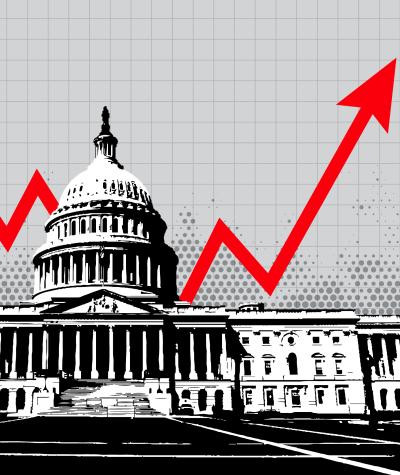President Biden has announced his support for a ban on congressional stock trading a few weeks before new members of Congress are sworn in with high levels of stock ownership that are already drawing concerns about the potential for conflicts of interest.
Campaign Legal Center (CLC) completed a review of the personal financial disclosure reports filed by new members of Congress during their candidacy. CLC found that stock ownership is even more prevalent in the freshman class than in the previous Congress.
Per CLC’s previous analysis based on annual reports filed last year, 46% of the 118th Congress owned stock. That percentage jumped to 61% of incoming freshmen (including members that were elected in 2024 special elections). The increase in stock ownership is a bipartisan trend: CLC’s research shows that 56% of incoming stock owners are Republican and 44% are Democrat.
The jump in the number of members holding stock indicates that disclosure violations (and accompanying actual or perceived conflicts of interest) are unlikely to abate and may even increase in the new Congress.
Members of Congress are required under the STOCK Act to file annual personal financial disclosure reports, as well as periodic transaction reports (PTRs) within 45 days of trading any stock. This provides constituents with real-time information about their representatives’ potential conflicts of interest.
At least 62 members violated the STOCK Act last term. One of those violators was Florida Congressman Byron Donalds, who failed to timely disclose up to $1.6 million in stock transactions, about which CLC filed a complaint with the Office of Congressional Ethics (OCE).
Some of the companies that Rep. Donalds traded in were under the jurisdiction of House Financial Services Committee, on which he sat last term. Others involved companies that contributed to his campaign committee and lobbied on legislation that he sponsored or co-sponsored.
As CLC warned when filing similar complaints against lawmakers in both major parties in 2021, the lack of meaningful enforcement of the STOCK Act combined with the nominal $200 penalty imposed on offenders have not deterred members from violating the law.
The public overwhelming wants reform: 86% of people across party lines support prohibiting members of Congress from trading stocks.
Congress can rebuild public confidence in our federal government with the End Trading and Holdings in Congressional Stocks (ETHICS) Act, which passed a bipartisan Senate Committee vote in 2024.
This bill would ban members of Congress (as well as the president and vice president) from buying or selling stocks and other securities, commodities, or futures while in office.
The ETHICS Act would also impose meaningful penalties on covered elected officials that fail to divest or conduct a trade while in office: They face a penalty equal to their monthly salary, or 10% of the value of the covered asset, whichever is greater. This fine more adequately reflects the seriousness of an elected official breaking the public’s trust.
Congress has an opportunity to solve a bipartisan issue with a bipartisan solution. Reintroducing and passing the modified ETHICS Act would help rebuild public confidence that our lawmakers are not putting their own personal financial interests above their constituents.

